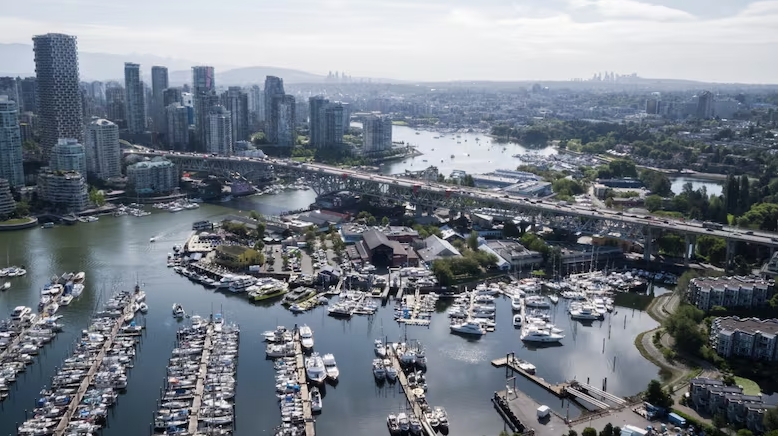Granville Island Faces $300M Upgrade Bill — Could Housing Be the Answer?
Lucas Tremblay
6/12/20252 min read


Granville Island is one of Vancouver’s most beloved spaces — but beneath its charm lies a crumbling infrastructure in desperate need of renewal. Officials say the popular peninsula requires as much as $300 million in upgrades, yet lacks a clear mechanism to fund them.
“We’re kind of stuck in where we can get money from,” said Tom Lancaster, Granville Island’s general manager. “The problems can be pushed into the future over and over until it’s no longer really that desirable. We’re not there yet, but we’re close.”
Buildings in need of repairs, including the roof of the iconic public market, are just part of the challenge. The island's unique governance model, managed federally by the Canada Mortgage and Housing Corporation (CMHC), allows it to be self-sustaining — but also limits access to large-scale public investment.
No Easy Fix
Despite generating its own revenue and avoiding market-driven pressures for decades, the island’s ability to finance major capital projects is constrained. A recent panel event and viral video by urbanist Utaye Lee helped draw attention to the island’s financial strain, while a public survey floated the idea of creating a charitable foundation to support its future.
“The governance model seems to have either stalled or is just simply not working today,” said Vancouver Councillor Mike Klassen, who emphasized the need for revitalization. “It doesn’t represent the city well.”
The Housing Debate
At a public forum last week, former Vancouver mayor and B.C. premier Mike Harcourt suggested a bold — and unpopular — solution: build housing.
“Let’s put housing in,” Harcourt proposed, arguing that without new housing units, higher levels of government are unlikely to help. He suggested converting some parking lots or outdated buildings into mid-rise residential developments with space set aside for artists.
The idea was met with loud boos.
Harcourt wasn’t surprised. “I don’t mind being booed … I just tell it like it is,” he said. “If we don’t want to commercialize the whole island, and nobody’s writing $500 million cheques, then housing might be the most realistic option.”
Lancaster didn’t rule it out, saying, “At this point in history, we have to really look at everything.” But he acknowledged the emotional connection many have with the island: “People want things to change, but they want it to stay the same.”
What's Next?
The CMHC says there are no current plans for housing but is open to “engaging with stakeholders” on the island’s future. Meanwhile, the idea of forming a Granville Island Foundation remains on the table as a way to crowdsource support and fundraising.
As Harcourt put it, the moment has arrived for difficult decisions.
“It’s so vitally important to the city — you’re not going to find another location like this,” he said. “We’ve had a good run, but now we need to rethink what’s next.”
News
Stay updated with the latest BC news stories, subscribe to our newsletter today.
SUBSCRIBE
© 2025 Innovatory Labs Inc.. All rights reserved.
LINKS
